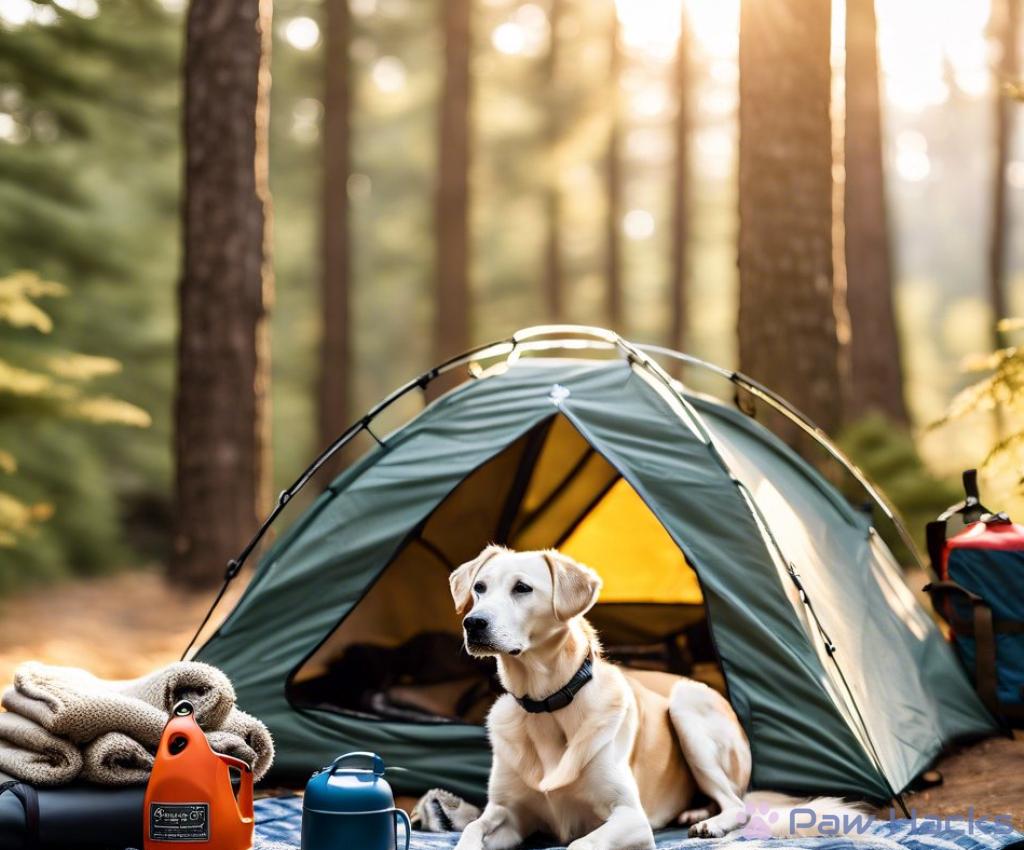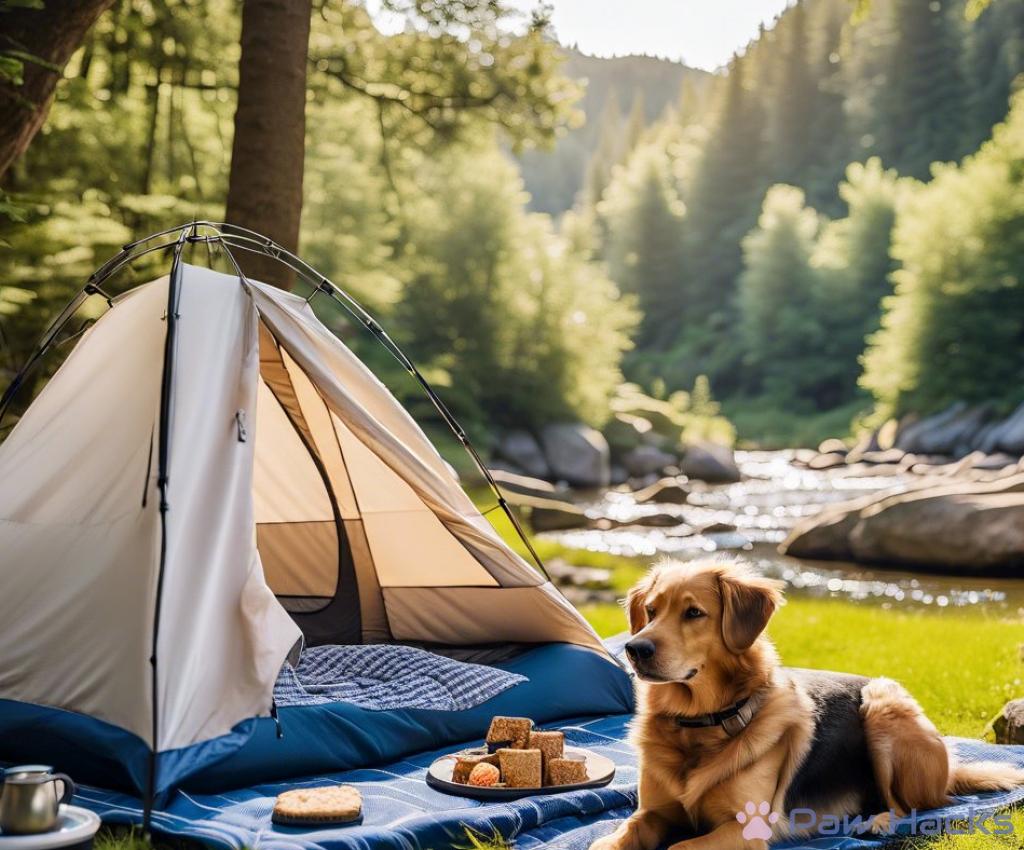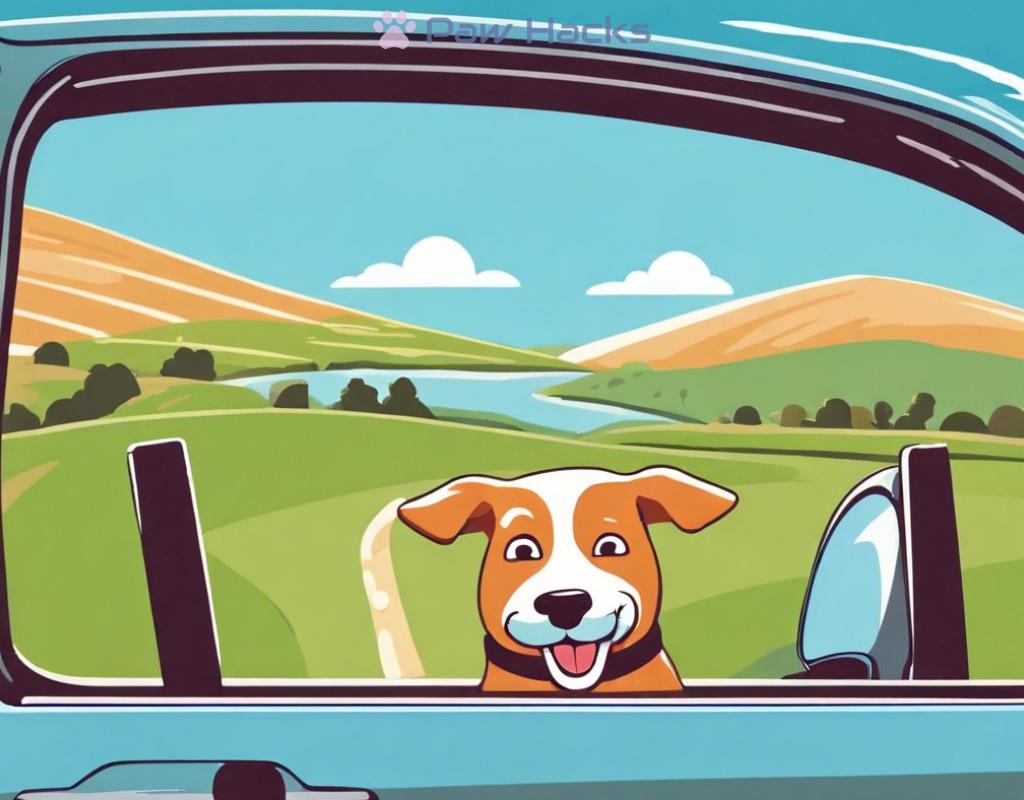Camping with Senior Dogs
Preparing for the Adventure: Essential Gear for Senior Dogs

Camping with senior dogs can be a delightful experience, but it comes with its unique set of challenges. As dogs age, their needs change, and what once was a simple outdoor trip may require more planning and special gear. Ensuring that your furry friend is comfortable, safe, and happy during your camping adventure is paramount. Below we will discuss essential gear that every pet parent should consider before hitting the trail with their senior pooch.
When preparing for a camping trip, it’s important to consider the specific requirements of senior dogs. These dogs may have mobility issues, sensory decline, or other health concerns that need to be addressed. Here’s a handy list of essential gear that can help make your camping experience more enjoyable for your furry friend:
- Comfortable Bed: A portable, cushioned bed can provide your dog with a familiar and comfortable place to rest.
- Non-Slip Harness: A sturdy harness with a non-slip feature can support your dog during hikes and prevent any accidents.
- Portable Water Bowl: Staying hydrated is crucial, especially in warmer weather. A collapsible water bowl is easy to carry and convenient.
- First Aid Kit: Always be prepared for minor injuries with a first aid kit tailored for dogs.
- Dog Jacket or Sweater: Depending on the weather, a cozy jacket can keep your senior dog warm during chilly nights.
- Reflective Gear: Visibility is key. Reflective collars or vests can help keep your dog safe during evening walks.
Beyond the essential gear, there are additional aspects to think about for a successful camping trip with your senior dog. Consider the terrain and choose campsites that are accessible and dog-friendly. Also, make sure to plan for regular breaks, as senior dogs may need more frequent rest stops on hikes. Keeping your dog’s health records handy can also be beneficial in case of emergencies.
With the right preparation and gear, camping with your senior dog can be an adventure that strengthens your bond and creates wonderful memories. Make sure to take into account your dog’s unique needs and preferences, and you’re bound to have a fantastic time in the great outdoors!
Finding the Perfect Campsite: Senior Dog-Friendly Locations

Choosing the right campsite is an essential step in ensuring a positive camping experience for you and your senior dog. With their unique needs in mind, it is vital to select a location that will accommodate them comfortably. Not all campsites are created equal, and some may pose challenges that could detract from your adventure. Understanding what makes a campsite senior dog-friendly will help you make informed decisions and create lasting memories.
When scouting for the perfect camping spot, consider the accessibility of the location. Look for campsites with level ground and short walking distances to essential amenities such as restrooms and water sources. Avoid steep hills or rocky paths that could be hard on your senior dog’s joints. Additionally, sites with ample shade are ideal, as they provide a cool place for your dog to rest, especially during warm weather.
Before you set your heart on a campsite, investigate its pet policies. Some campsites may have restrictions on the number of pets, size limits, or even breed restrictions. To avoid any surprises upon arrival, contact the campsite management to clarify their dog-friendly regulations. Familiarize yourself with any local laws regarding leash requirements and designated pet areas. This knowledge will ensure a smooth experience and help keep your senior dog safe.
Consider the surrounding environment when selecting your campsite. Look for locations that offer gentle terrain and calm surroundings to minimize stress for your dog. A site near a quiet lake or a peaceful forest can provide a serene atmosphere that is enjoyable for both you and your furry companion. However, be cautious of wildlife and ensure the area is safe for your dog to explore. Always check for any hazards such as steep cliffs or aggressive wildlife that could pose risks.
In summary, finding the right campsite for your senior dog is all about considering their unique needs and ensuring a safe, comfortable environment. With a little research and preparation, you can discover the perfect spot that both you and your aging pup will love. Enjoying nature together can not only strengthen your bond but also create cherished memories that last a lifetime.
Health and Safety Tips: Keeping Your Senior Dog Comfortable Outdoors
When embarking on a camping adventure with your senior dog, it’s essential to prioritize their health and comfort. As dogs age, they often face challenges such as arthritis, reduced stamina, and heightened sensitivity to temperature changes. Understanding these issues is the first step in ensuring a pleasant outdoor experience for your furry companion. Always monitor your senior dog for any signs of discomfort or fatigue, and be prepared to adjust your plans accordingly. Remember, a well-rested dog is a happy dog!
In the great outdoors, safety is paramount. Set up a designated area for your dog that is both comfortable and secure. Choose a spot away from potential hazards, such as sharp rocks or thorny bushes, where your dog can rest without worry. Utilize a portable dog bed or blanket to provide a familiar and cozy resting place. This can help reduce anxiety and promote relaxation, especially in new environments. Additionally, consider bringing along a canopy or tent to provide shade from the sun, as older dogs can be particularly susceptible to overheating.
Hydration is another critical aspect of your dog’s well-being. Always have fresh water available and encourage your dog to drink regularly, especially during warm weather. Dehydration can lead to serious health issues, so keeping your dog hydrated is essential. For added safety, make sure to have a first aid kit readily accessible, equipped with dog-specific supplies. It’s better to be overprepared than to face a situation without the necessary tools.
While it’s tempting to embark on long hikes or vigorous play sessions, it’s crucial to tailor your activities to suit your senior dog’s capabilities. Shorter, more frequent walks are often better than extended outings. Pay attention to your dog’s behavior; if they seem tired or reluctant, it’s time for a break. Remember that senior dogs may have slower recovery times, and pushing them too hard can lead to injuries or exhaustion.
In addition to physical activity, be aware of your dog’s emotional state. Camping can introduce unfamiliar sounds and sights that may cause anxiety. Providing a comforting presence and engaging in calm, reassuring interactions can help alleviate stress. If your dog seems unsettled, consider using familiar toys or blankets to create a sense of security.
| Health Consideration | Tip |
|---|---|
| Arthritis | Choose flat, soft ground for resting and avoid steep inclines during walks. |
| Heat Sensitivity | Provide shade and limit outdoor activity during peak sun hours. |
| Stamina | Opt for short, leisurely walks instead of extensive hikes. |
By taking these health and safety tips into account, you can ensure that your senior dog enjoys the camping experience as much as you do. A little preparation can go a long way in keeping your furry friend comfortable and happy in the great outdoors.
Fun Activities That Suit Senior Dogs: Enjoying Nature Together
Embarking on a camping adventure with your senior dog opens the door to a world of delightful experiences. While your aging companion may not be able to participate in the same high-energy activities as they once did, there are plenty of fun and engaging alternatives that allow both of you to enjoy the great outdoors. It’s all about adapting your plans to suit their needs while ensuring they have a splendid time exploring nature by your side.
One of the simplest yet most enjoyable activities is taking leisurely walks through scenic trails. These gentle strolls allow your senior dog to soak in the sights and smells of the wilderness without the strain of rigorous exercise. Opt for flat, well-maintained paths and take your time, allowing your dog to explore at their own pace. Frequent breaks will also keep them comfortable and hydrated.
While high-energy fetch games may be too strenuous, interactive play can still be part of the fun! Consider bringing light toys that encourage gentle engagement, such as soft frisbees or tug ropes. Play under the shade to keep your senior dog cool and comfortable. This can be a fantastic way to bond while keeping their spirits high. Additionally, you can incorporate a game of hide-and-seek with treats, stimulating their senses without overexerting them.
After a day filled with enjoyable activities, nothing beats winding down with a cozy campfire. Set up a comfortable spot for your senior dog and enjoy the warmth of the fire together. This is a perfect time for some light bonding, sharing stories, or simply enjoying each other’s company. Consider bringing along their favorite blanket or pillow to create an inviting space for them beside you.
Here’s a quick list of fun activities to enjoy with your senior dog while camping:
- Leisurely nature walks on gentle trails
- Interactive games like gentle fetch or tug-of-war
- Hide-and-seek using treats for mental stimulation
- Relaxing under the stars by the campfire
- Quiet moments enjoying the natural surroundings
By considering your senior dog’s comfort and preferences, you can create a camping experience filled with joy and connection. Remember, it’s not about the pace or the intensity of activities but about enjoying the moments spent together in the beauty of nature.
Traveling with Senior Dogs: Tips for a Smooth Journey
When preparing for a camping trip with your senior dog, it’s essential to recognize that their needs during travel are different from younger dogs. As they age, dogs may experience more discomfort during long journeys, making it crucial to plan ahead. A smooth journey begins with frequent breaks and ensuring your dog is comfortable throughout the ride. Always keep their favorite blanket or toy nearby, as familiar items can provide a sense of security during travel.
Establishing a comfortable environment within your vehicle is key to a pleasant trip. Use a well-padded dog seat cover to minimize discomfort from bumps along the road. If your senior dog has mobility issues, consider using a dog ramp to help them enter and exit the vehicle easily. Additionally, ensure that the car is well-ventilated and maintain a comfortable temperature so your dog doesn’t overheat. During stops, allow your dog to stretch their legs and relieve themselves in a safe area. This not only keeps them comfortable but also helps prevent stiffness and anxiety.
Health concerns are a significant aspect of traveling with senior dogs. Before you set out, check in with your veterinarian to discuss any specific medical needs your dog may have and ensure that their vaccinations are up to date. Keep a first aid kit handy, stocked with dog-specific supplies, to address any minor injuries or health issues that may arise on the road. It’s also wise to have a copy of your dog’s medical records with you in case of emergencies. Remember, a well-prepared journey can lead to a wonderful camping experience, allowing you and your senior dog to enjoy the great outdoors together.
Share this content:



